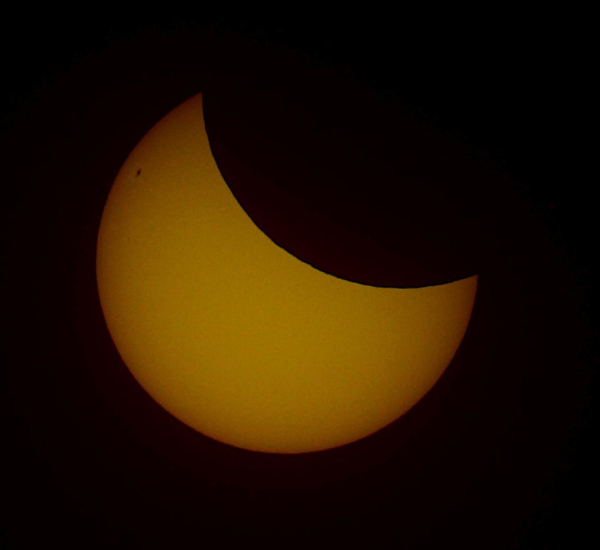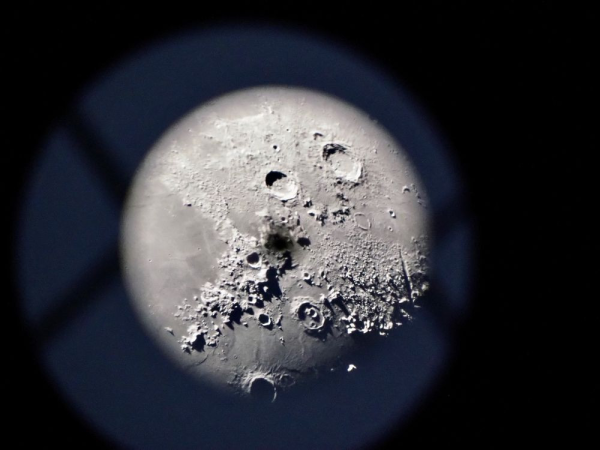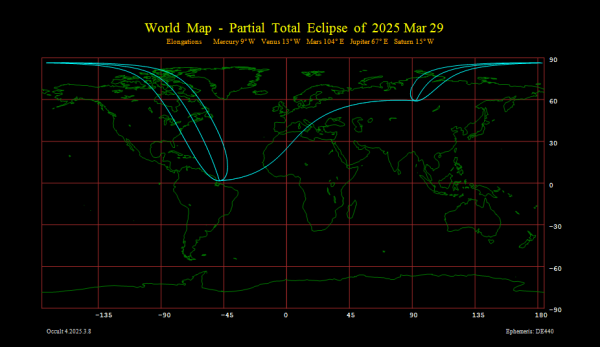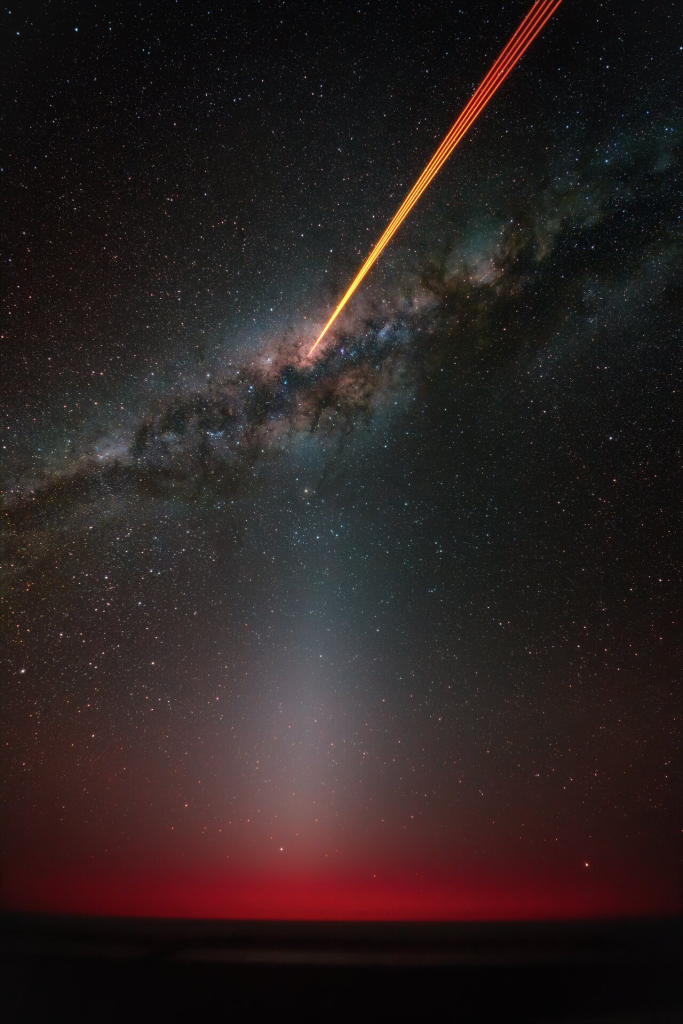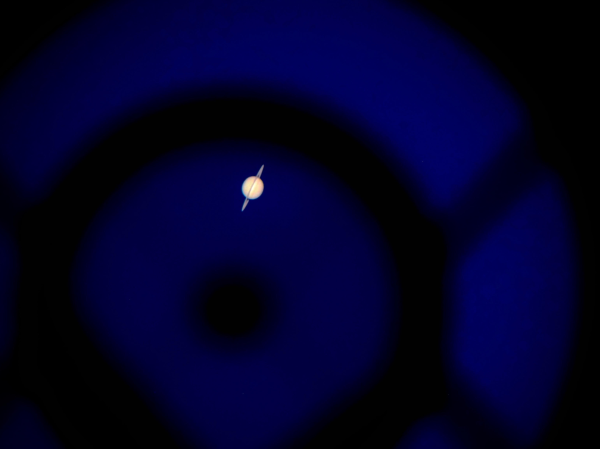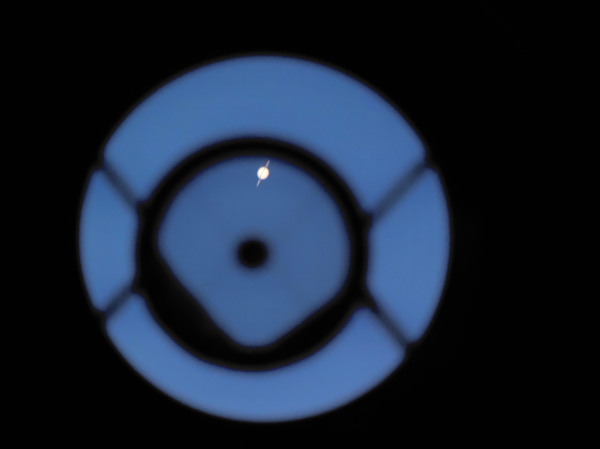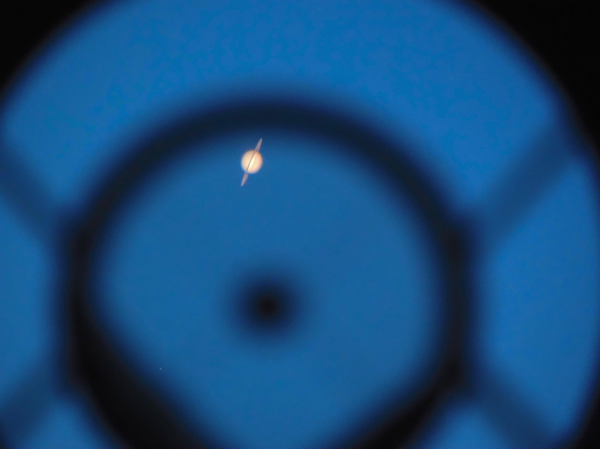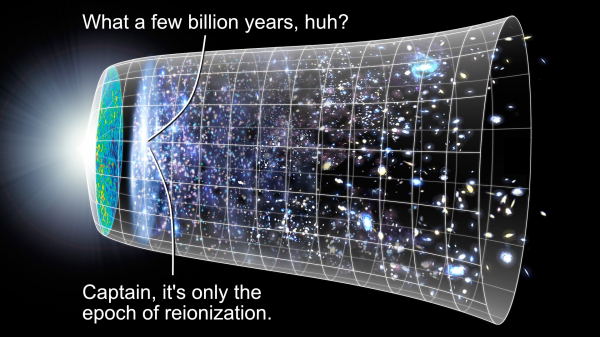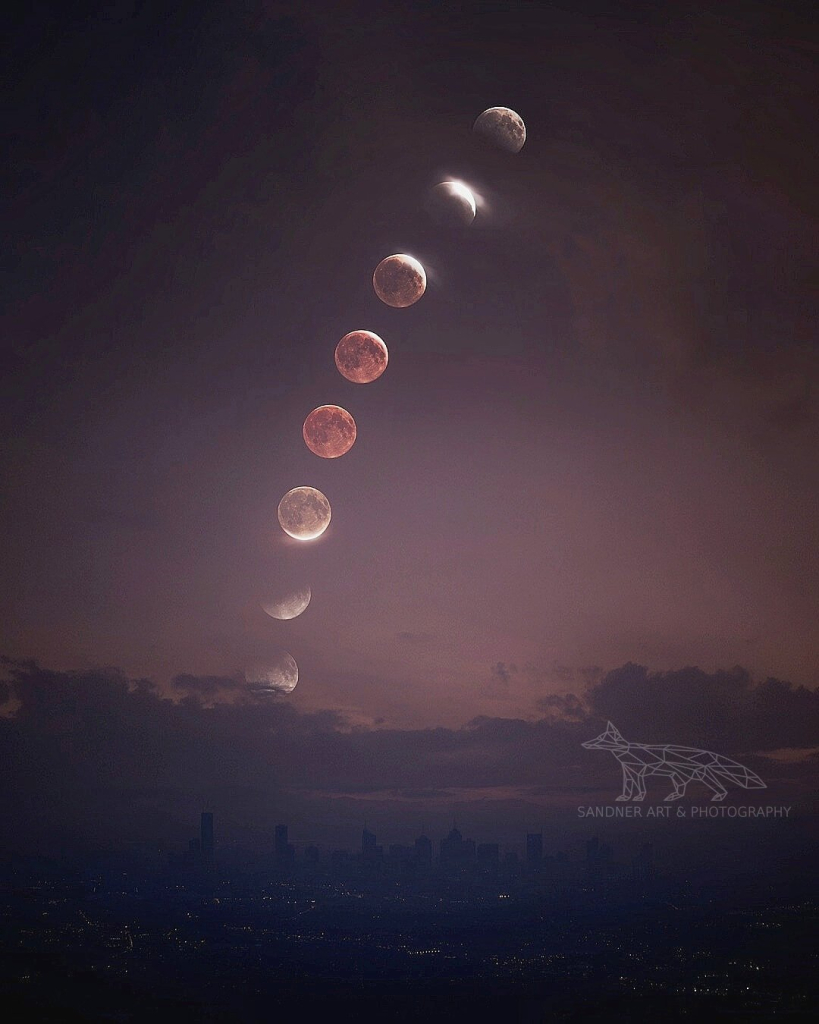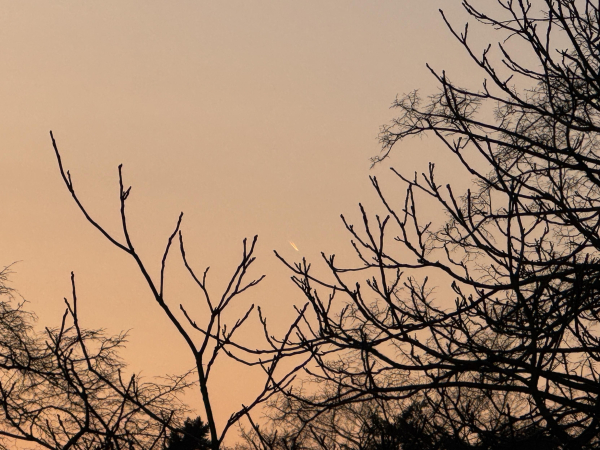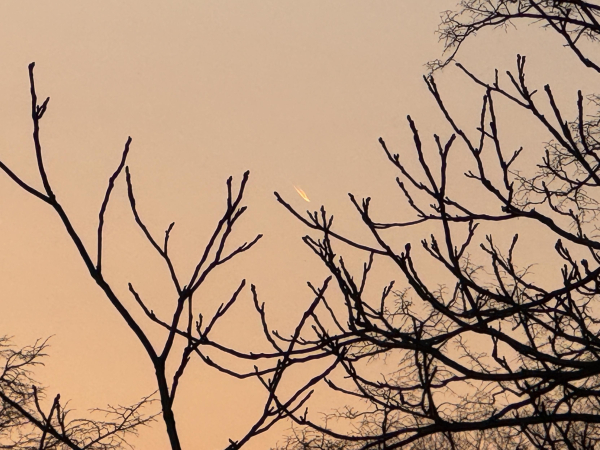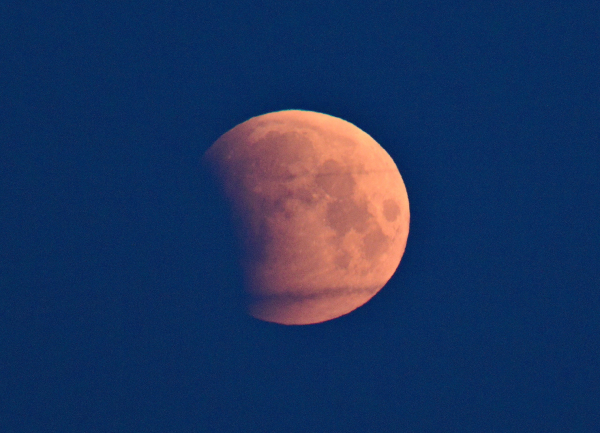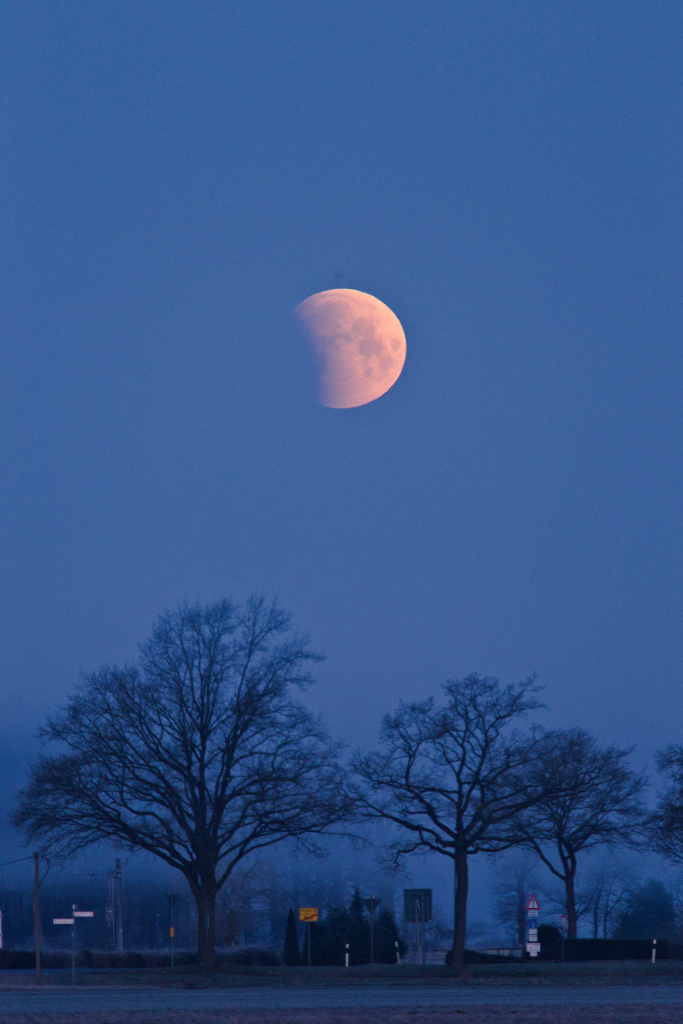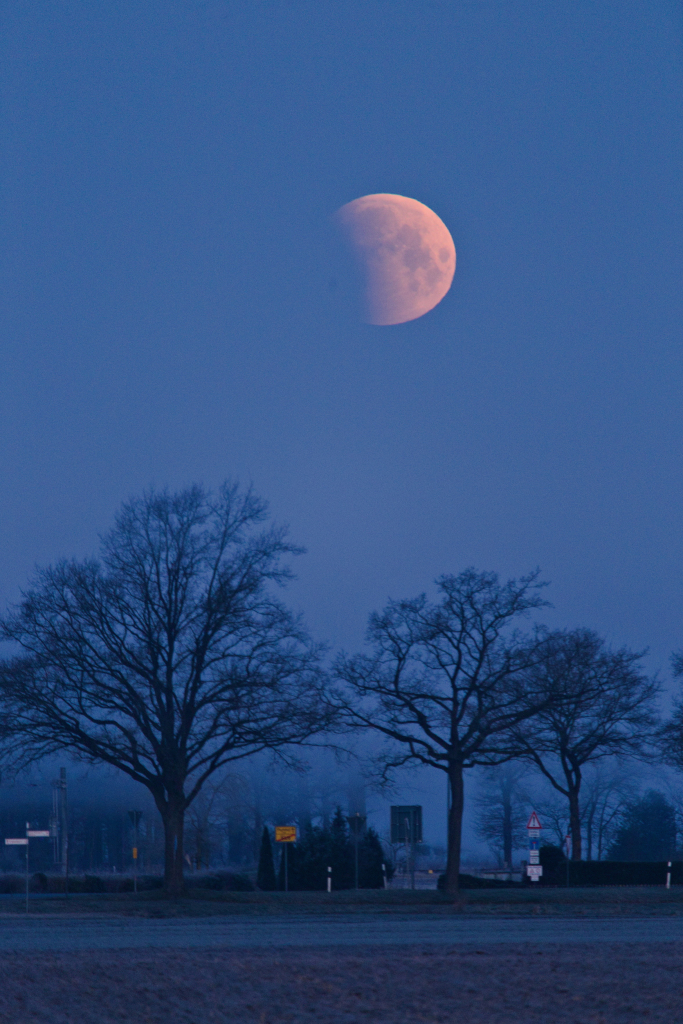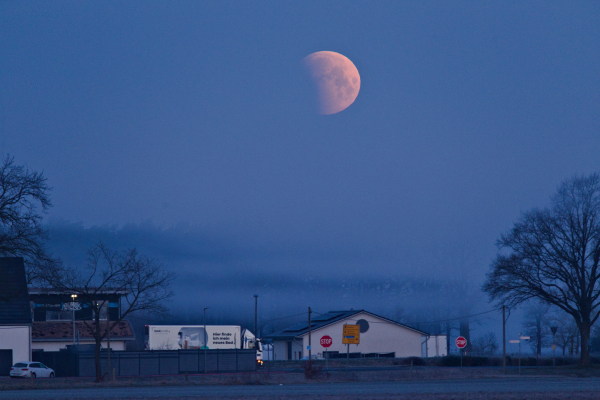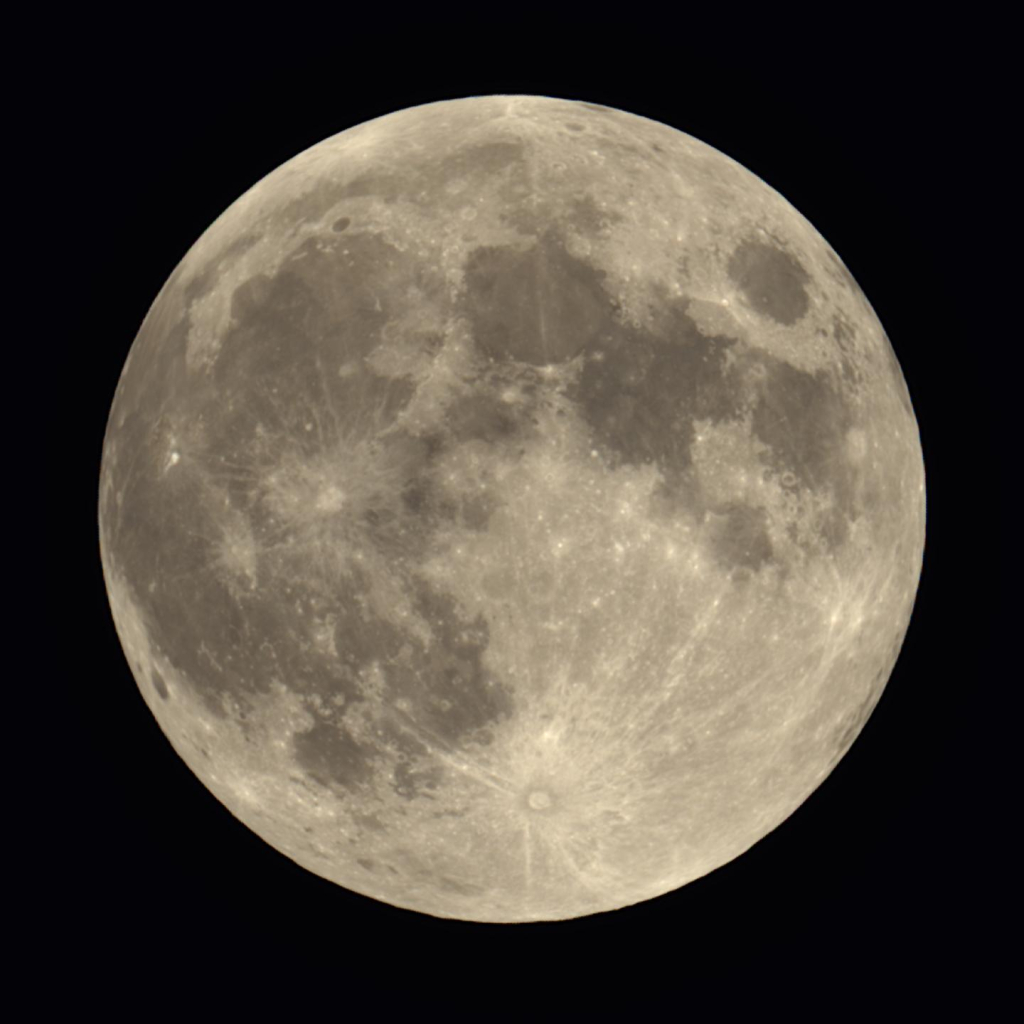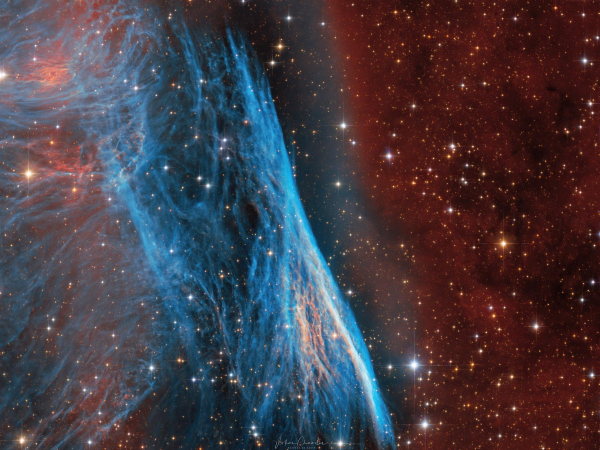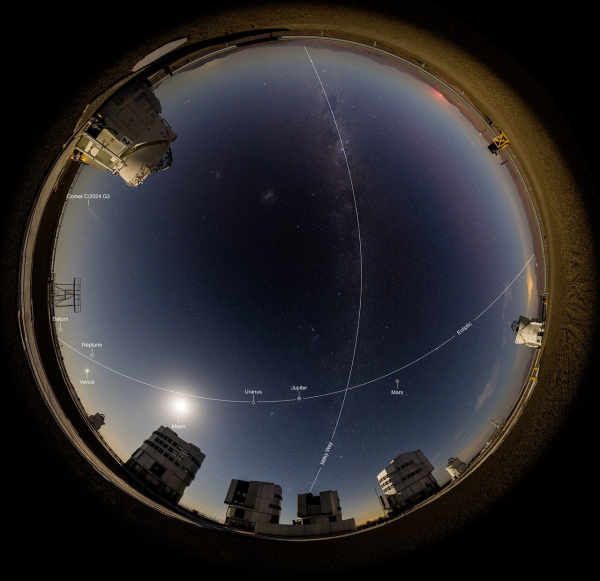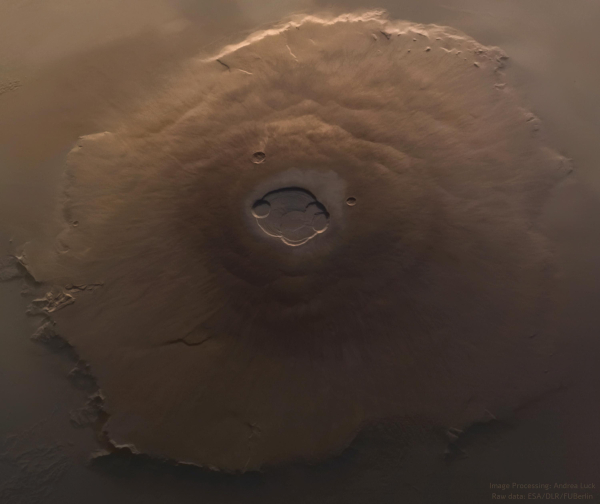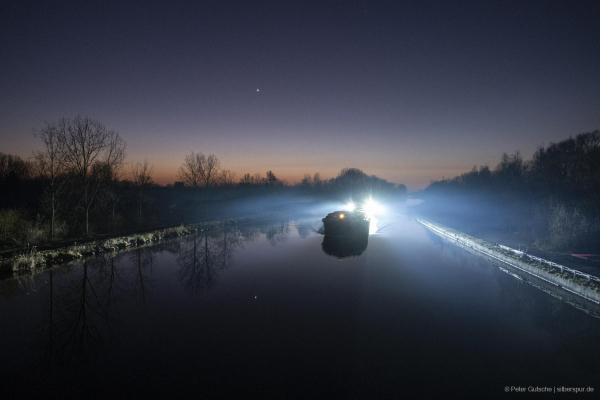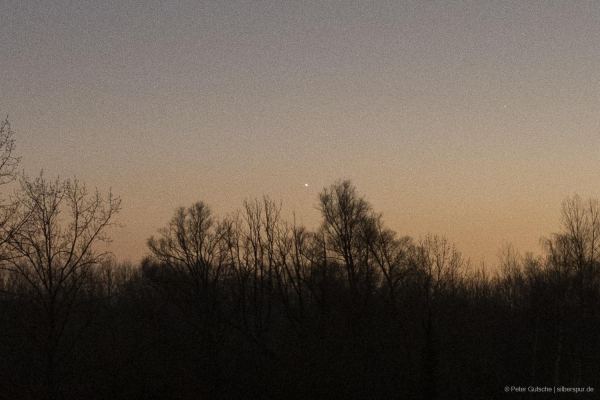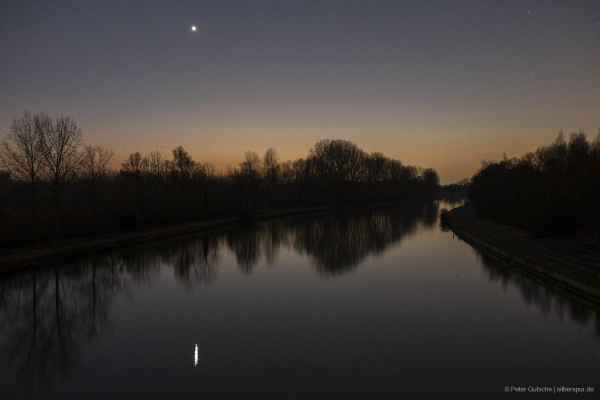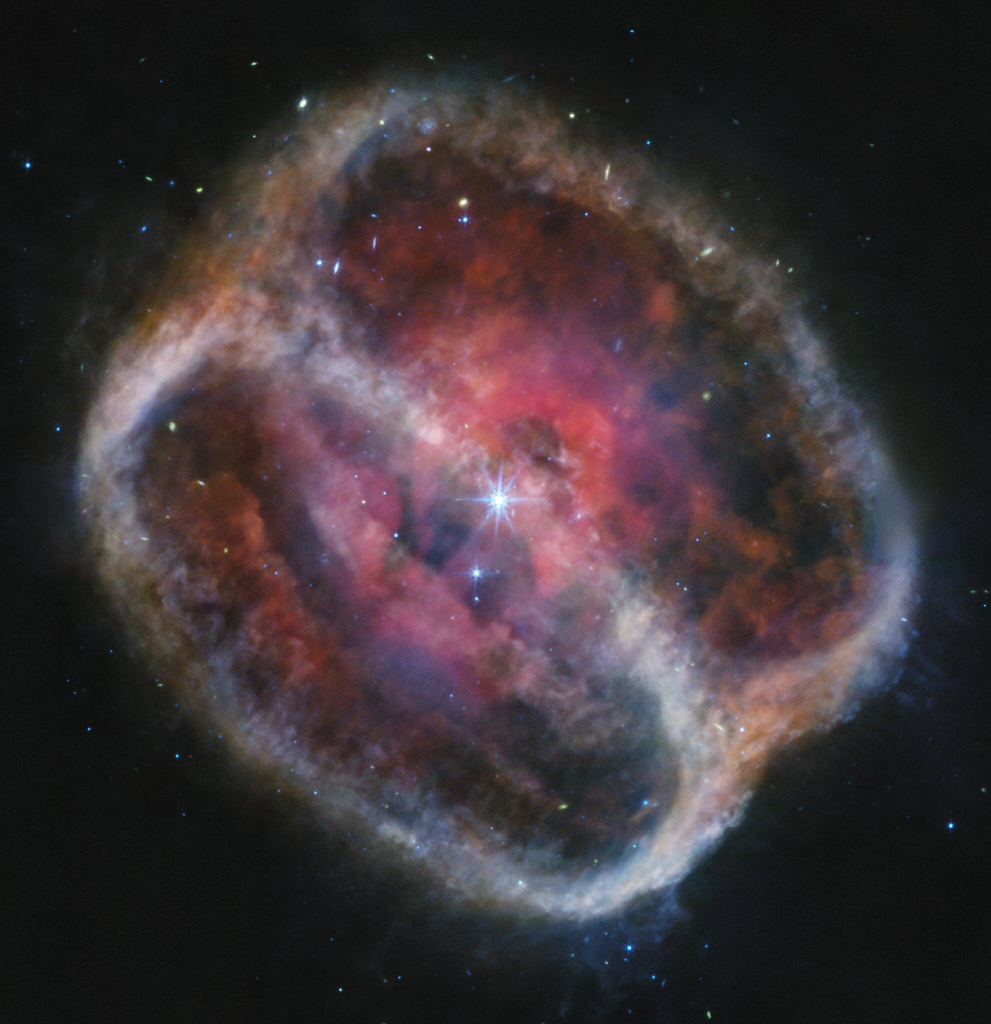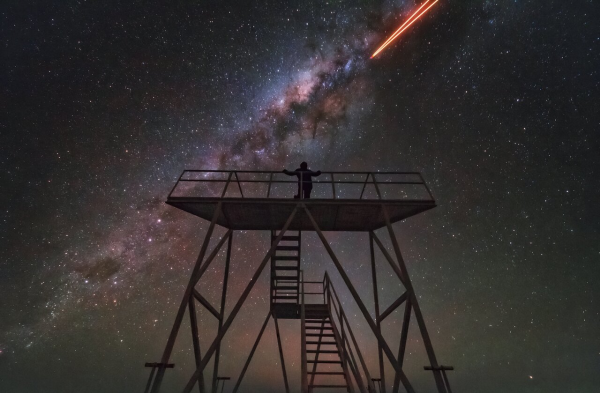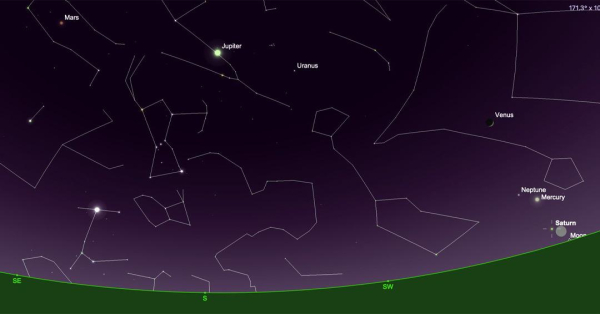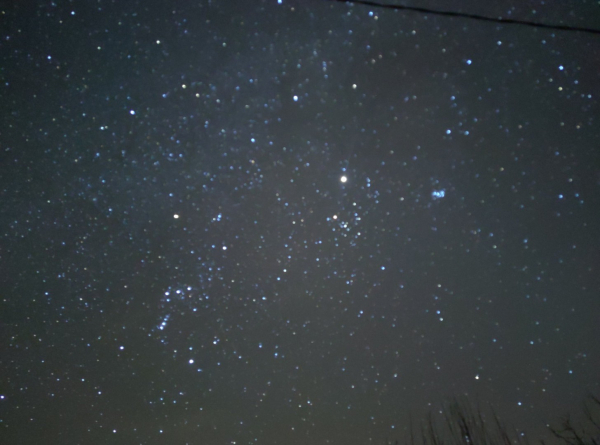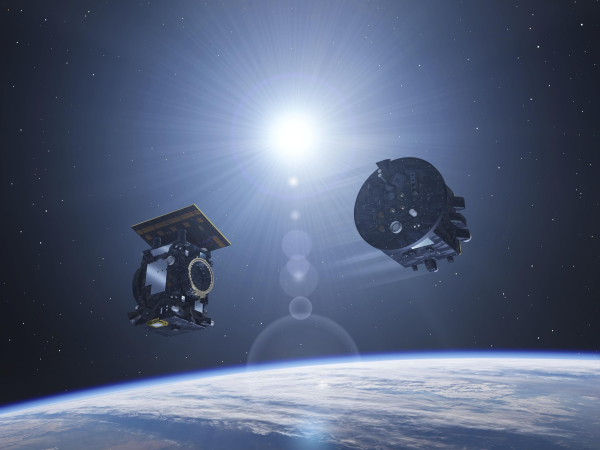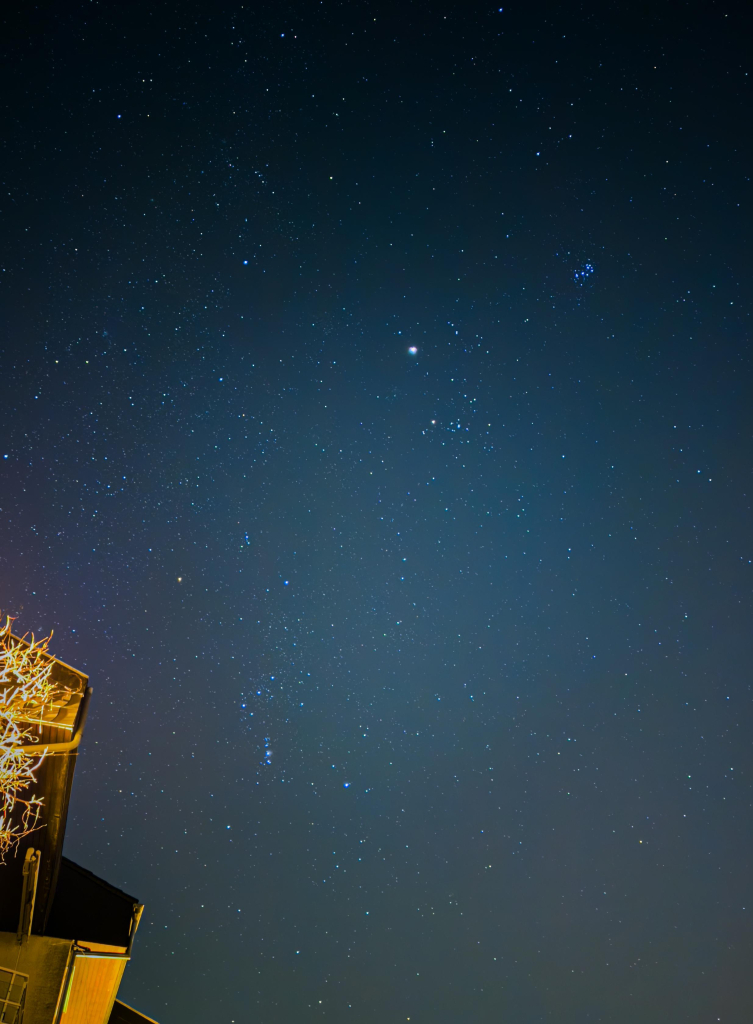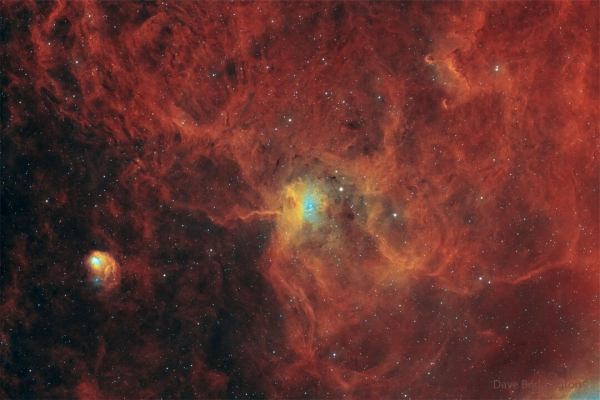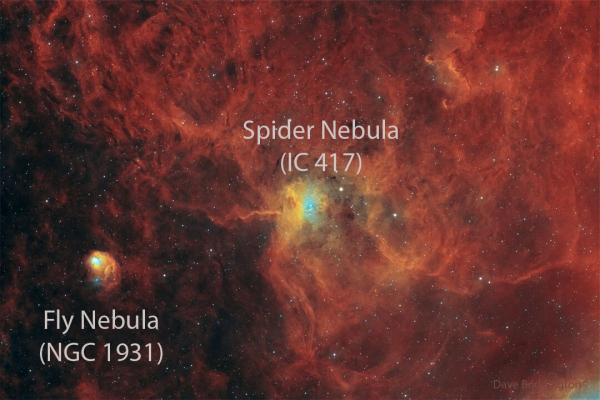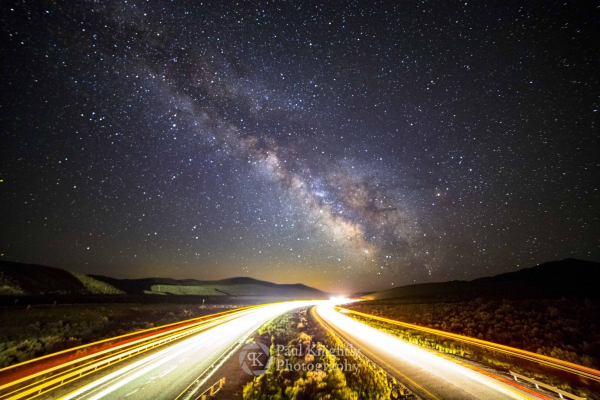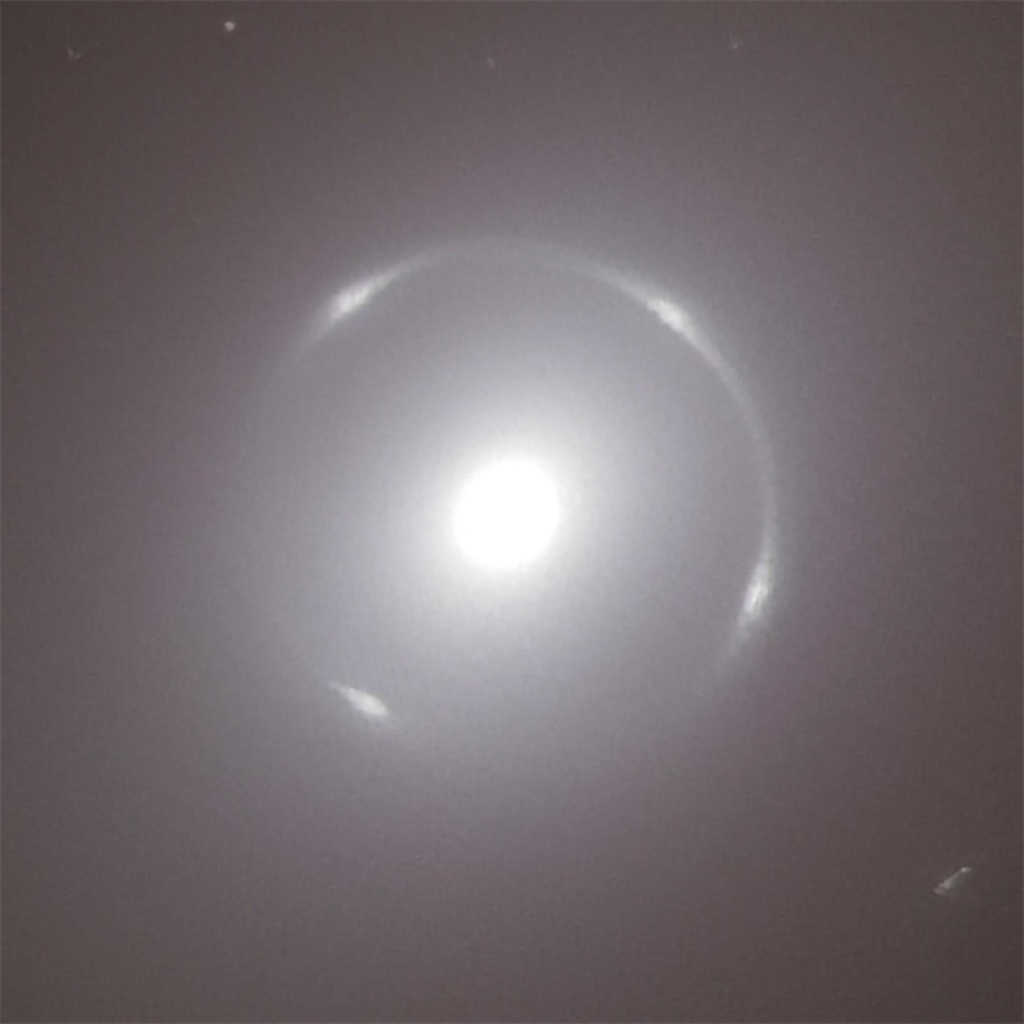Suche
Beiträge, die mit Astronomy getaggt sind
Baader OD 3.8 Digital Solar Filter
Canon EOS 2000Da
WO Spacecat
Skywatcher AZ-EQ 6 GT
(Stack; Adobe PS, Crop)
#astrophotography #astronomy
To get in the spirit, let’s take a (very) close peek at our cosmic neighbour, with its crater-covered surface. And, sadly, no cheese in sight 🧀 👀
This image was captured in early January through the Nasmyth A focus of the UT1 telescope at our Very Large Telescope (VLT) in #Chile
📷 Abigail Frost
#astrodon #astronomy #astrophotography #science
What you’re seeing is a map of the 106 CCD detectors that Gaia used to measure the positions of billions of stars in the Milky Way for the past 11 years 🛰️✨
They were turned off in a special sequence … 😕
#SpaceScience #Astronomy #Science
#Astronomy #AstroPhysics #Cosmos #JWST #Science
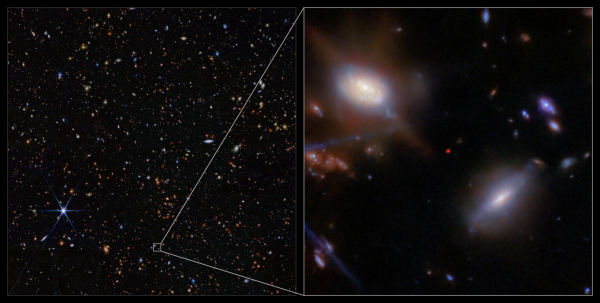
Webb sees galaxy mysteriously clearing fog of early Universe
Using the unique infrared sensitivity of the NASA/ESA/CSA James Webb Space Telescope, researchers can examine ancient galaxies to probe secrets of the early Universe.www.esa.int
Partial Solar Eclipse on 2025 March 29 – Measure the Solar Diameter during Solar Maximum.
Video observations of the contact times of the upcoming solar eclipse are needed for a study of the solar diameter.
Details:
https://call4obs.iota-es.de/2025-mar-29-partial-solar-eclipse-measure-the-solar-diameter-during-solar-maximum
#eclipse #sun #solareclipse #astronomy #citizenscience
That’s the zodiacal light: caused by dust grains in the Solar System, it's so faint that it’s only visible in the darkest skies, such as those of Chile’s Atacama Desert.
And the pristine night sky 🌌 in this region has always been intertwined with the culture and traditions of its indigenous people, discover how: https://www.eso.org/public/images/potw2511a/
📷 F. Millour/ESO
#astrodon #astronomy #astrophysics #space #science
On 23 March, the Earth's orbit will cross the plane of the rings, making the majestic rings appear edge-on from our perspective. Since Saturn will be positioned very close to the Sun in the sky, it won’t be possible to observe it as the Earth crosses the plane. The rings will then become visible again in September this year.
Courtesy of ESO astronomer Abigail Frost, these images were captured in early January through the Nasmyth A focus of Unit Telescope 1 at our Very Large Telescope (VLT) in #Chile .
#astrodon #astronomy #astrophotography #science
https://www.youtube.com/watch?v=DVlKqFrvhRY
#astronomy #science #space
Euclid Deep Field South: https://sky.esa.int/esasky/?hide_welcome=true&hide_banner_info=true&hips=DES-DR2+ColorIRG&sci=false&layout=esasky&euclid_image=EDFS
Euclid Deep Field North: https://sky.esa.int/esasky/?hide_welcome=true&hide_banner_info=true&hips=PanSTARRS+DR1+color+(i%2C+r%2C+g)&sci=false&layout=esasky&euclid_image=EDFN
Euclid Deep Field Fornax: https://sky.esa.int/esasky/?target=53%20-28&hips=Q1-EDFF-R4-PNG-RGB&fov=14.999999999999998&projection=TAN&cooframe=J2000&sci=false&lang=en&layout=esasky&euclid_image=EDFF
#astronomy #space #ESA
More here: https://www.esa.int/Science_Exploration/Space_Science/Euclid/Follow_the_reveal_of_Euclid_s_new_catalogue_on_19_March
Press releases and directions for data access will follow at the same time.
#astronomy #space #science
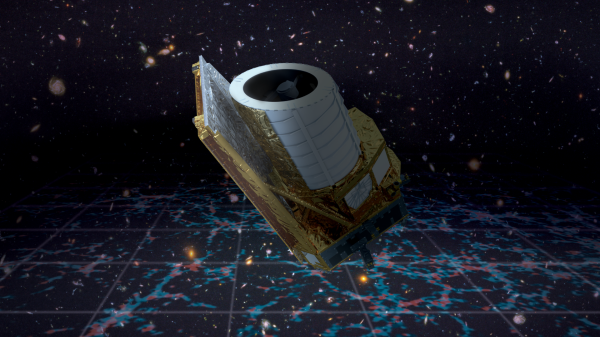
Follow the reveal of Euclid’s new catalogue on 19 March
The European Space Agency is releasing the first catalogue of astronomical data from the Euclid space telescope, including three new enormous image mosaics with zoom-ins. Follow the reveal live on Wednesday 19 March at 11:00 BST / 12:00 CET.www.esa.int
Here is how you can follow the release presentation live:
https://www.esa.int/Science_Exploration/Space_Science/Euclid/Follow_the_reveal_of_Euclid_s_new_catalogue_on_19_March
#astronomy #space #science
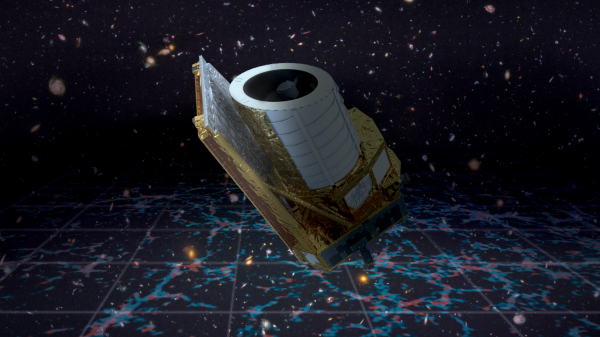
Follow the reveal of Euclid’s new catalogue on 19 March
The European Space Agency is releasing the first catalogue of astronomical data from the Euclid space telescope, including three new enormous image mosaics with zoom-ins. Follow the reveal live on Wednesday 19 March at 11:00 BST / 12:00 CET.www.esa.int
More about me & prints:
https://linktr.ee/steven.sandner
This sequence is from the total lunar eclipse a few years back
#moon #astronomy #bloodmoon
steven.sandner | Instagram | Linktree
Landscapes and beautiful moments 🍂💫✨ #art #hiking #photographyLinktree
Gerne boosten. 😊👍🏼
#sky #NorthGermany #comet #satellite #meteroid #Meteroid #Meteor #Satellit #Asteroid #asteroids #Weltraumschrott #space #spaceexploration #astronomy #astrophotography #Astronomie
#LunarEclipse #TotalLunarEclipse #astronomy #astrophotography #photography
#astrophotography #astronomy #lunar #eclipse
AAPOD2.COM | Daily Astrophotography: Space Images & Insights
Explore a new Amateur Astronomy Photo of the Day at AAPOD2. Our platform is designed to curate and spotlight remarkable images by Amateur Astrophotographers, providing a daily dose of awe-inspiring visuals that capture the splendor of the cosmos.AAPOD2.COM
In this image, taken in early February, the planets of the Solar System appear to parade one after the other above our Paranal Observatory in #Chile. Joining the party are the #Moon, the #MilkyWay, and a special guest: comet C/2024 G3 ☄️
A question we often get is whether the planets orbit the Sun in the same plane as the disc of the Milky Way. This image shows that's not the case: the plane of the Solar System –the ecliptic– is tilted about 60º relative to the Milky Way.
Read more: https://www.eso.org/public/images/potw2510a/
📷 B.Haeussler/ESO
#astrodon #astronomy #astrophysics #astrophotography #space #science
Full size & info: https://flic.kr/p/2qQA6Fc
Credit: ESA/@DLR@social.bund.de/FUBerlin/AndreaLuck CC BY
Taken on 2024-08-06
Release Date: 2025-03-01 on https://psa.esa.int/
#Mars #Solarocks #Astronomy #Space #ESA #Astrodon
Mars, Olympus Mons near the terminator - ESA Mars Express
Credit: ESA/DLR/FUBerlin/AndreaLuck CC BY Mission: ESA Mars Express North is approx on the left Instrument: HRSC Orbit: 26003 Time: 2024-08-06T23:43:32 Release Date: 2025-03-01 Raw Data from: psa.esa.int/ File Name/ID: HQ003_000_ND3.Flickr
3/3
#Astronomy #Astronomie #AstroPhotography #Astrofotografie #Planets #Planeten #Venus #Mercury NaturePhotography #Nature #Water #River #Fluss #Wasser #Stille #Kontemplation #Spiegelung
2/3
#Astronomy #Astronomie #AstroPhotography #Astrofotografie #Planets #Planeten #Venus #Mercury NaturePhotography #Nature
High resolution:
https://friendica-leipzig.de/photo/media/718818
1/3
#Astronomy #Astronomie #AstroPhotography #Astrofotografie #Planets #Planeten #Venus #Mercury NaturePhotography #Nature #Water #River #Fluss #Wasser #Stille #Kontemplation #Spiegelung
https://newschannel9.com/news/offbeat/it-comprises-80-of-the-known-universe-but-we-know-almost-nothing-about-it-until-now-dark-matter-astronomy-milky-way-university-of-alabama-in-huntsville-galactic-accelerations-millisecond-pulsars-space-dwarf-galaxy-physics-breakthrough
> Researchers at the University of Alabama in Huntsville say they have made a major breakthrough in the study of dark matter in the Milky Way galaxy.
#astronomy
Meet the planetary #nebula NGC 1514, aka the "Crystal Ball Nebula". It's about 1500 light years away from Earth in the direction of the constellation Taurus.
Planetary nebulae occur toward the end of the lives of #stars that have about the mass of the Sun. They shed their outer layers into space, leaving behind an Earth-sized star called a white dwarf. Its temperature can be up to about 100,000 degrees, so it emits a lot of ultraviolet and X-ray light. That light energizes the gas ejected during the earlier phase, lighting it up like a neon sign. (NGC 1514's white dwarf is the bright star at the center with the spikes, which are an artifact of the telescope's optics.)
This image is a composite of individual frames made through three colored filters by the Webb telescope's Mid-Infrared Instrument (MIRI). The image shows two concentric shells of material whose bright edges appear as circles. It's actually an hourglass-shaped structure seen an angle inclined to our line of sight toward NGC 1514.
A newly published study finds that these rings are different than the reddish material inside them. The light they emit comes from very tiny grains of carbon-rich material given off by the progenitor star very late in its life.
But why the ring shapes? It turns out that the progenitor star was actually two, only one of which endured this phase of high mass loss. Energetic "winds" given off by the stellar pair shaped the carbon grains as they were pushed away from the system.
(Processing of this image was done by Judy Schmidt: https://www.flickr.com/photos/geckzilla/54206737999)
#Astronomy
NGC 1514 Infrared
Data from Proposal 1238: Sparse Spectral Mapping of NGC 1514 (pdf link because I have been unable to find html equivalents for JWST proposals) Principal Investigator Dr. Michael E.Flickr
Those yellow beams are the VLT’s laser guide stars, shooting up from the telescope (to the right, but outside of the frame) into the sky. The laser beams create artificial stars high up in the atmosphere, which the telescope’s adaptive optics system uses to make the sharpest possible observations of the cosmos, from the ground.
Read more: https://www.eso.org/public/images/potw2509a/
(*) The VLT actually comprises several telescopes. And yes, you can tease us about the name 😅
📷 F. Millour/ESO
#astrodon #astronomy #astrophotography #science
One of my first recommendations tends to be Stellarium (https://stellarium.org/). It’s free! It’s like having a planetarium on your computer! There’s a simpler web version!
Stellarium Astronomy Software
Stellarium is a planetarium software that shows exactly what you see when you look up at the stars. It's easy to use, and free.stellarium.org
Over the last few days, there's been a lot of talk about a ‘planetary parade’, but beware of exaggerations! Yes, all the planets in the solar system are visible at the same time, but it's not that obvious.
👁️ What can you see?
🔹 To the naked eye: Mercury, Venus, Mars, Jupiter and (with a little difficulty) Saturn.
🔹 With binoculars/telescope: Uranus and Neptune.
🗺️ Map valid for Brussels at 18h55 on 28/02/2025
#Astronomy
ℹ https://www.esa.int/Enabling_Support/Space_Engineering_Technology/Proba-3/Proba-3_stargazing_to_warm_up_for_corona_observations #Astronomy #SolarEclipses
Proba-3 stargazing to warm up for corona observations
The European Space Agency’s Proba-3 mission will create artificial solar eclipses in orbit, allowing scientists to study the Sun’s corona for longer periods of time than would be possible during eclipses observed from Earth.www.esa.int
New observations of 2024 YR4 conducted with ESO’s Very Large Telescope and facilities around the world have all but ruled out an impact of the #asteroid with our planet. The asteroid has been closely monitored in the past couple of months as its odds of impacting Earth in 2032 rose to around 3%, the highest impact probability ever reached for a sizable asteroid. After the latest observations, the odds of impact dropped to nearly zero.
Read more: https://www.eso.org/public/news/eso2505/
#astrodon #astronomy #astrophysics #space #science
#astrodon #astronomy #astrophysics #space #science
- YouTube
Auf YouTube findest du die angesagtesten Videos und Tracks. Außerdem kannst du eigene Inhalte hochladen und mit Freunden oder gleich der ganzen Welt teilen.www.youtube.com
https://do-q.vhx.tv/products/der-gute-kopf

Der gute Kopf
Dokumentarfilm mit Spielfilmszenen anlässlich des 250. Todestages des Astronomen Tobias Mayer Deutschland 2012, 61 min, HD Der Film über den Astronomen Tobias Mayer, der 1723 in Marbach - unweit vom späteren Geburtshaus von Friedrich Schiller - gebo…do-q media
Instagram):
https://www.instagram.com/reel/DGTUyumMWsc/
#science #space #astronomy
Two spacecraft will fly in formation to create solar eclipses on demand. The same basic technology could eventually lead to huge, virtual space observatories & to telescopes that can bring other Earths into view.
https://www.esa.int/Enabling_Support/Space_Engineering_Technology/Proba_Missions/Proba-3_Technologies #science #space #astronomy #esa
Proba-3 Technologies
A broad range of novel technologies are essential to make Proba-3 a success. The mission’s formation flying system includes components in both satellites, with a Formation Flying Management system being in charge of scheduling and planning formation …www.esa.int
This 30 sec iPhone 15 wide-field image shows open clusters like M35, faint planets like Uranus, & clearly separates both M42 & M43 in the Orion Nebula ✨
And since it detects stars almost to 10th magnitude (yes, I checked 🙂), you can readily make out the Taurus-Auriga dark clouds as regions where stars are 'missing' 🌚
Mad.
#Astronomy 🔭
#Photography 📷
#iPhonePhotography 📱
The Spider and the Fly
In the constellation Auriga, emission nebulas IC 417 (Spider) and NGC 1931 (Fly), both about 10,000 light-years away, house young star clusters. The deep image from Berkshire UK reveals these cosmic clouds with the Fly spanning 10 light-years.
HD image at https://apod.nasa.gov/apod/ap250211.html#space #astronomy #nebula #universe
APOD: 2025 February 11 – The Spider and the Fly
A different astronomy and space science related image is featured each day, along with a brief explanation.apod.nasa.gov
I soon realized that the highway alignment (northwest to southeast) would allow for a "highway to the stars" type of image, and started looking for an ideal overpass. This one caught my eye and I couldn't have been happier with the results. It took some time to capture, as it was necessary to get all of the Milky Way images without traffic on the highway, and then of course I needed to get a few images with light trails from the cars on the highway below.
I didn't have star tracker at the time, but other than that there are few things I would've changed considering the challenge and how it turned out!
#Astrophotography #Astronomy #Space #MilkyWay #Landscape #LandscapePhotography
Cet anneau encercle une #galaxie (NGC 6505) située à quelque 590 millions d'années lumière de la Terre. Il est constitué de la #lumière provenant d'une galaxie plus lointaine et brillante - une galaxie jusque là inconnue, distante de 4,42 milliards d'années lumière. Info+ : https://www.esa.int/Science_Exploration/Space_Science/Euclid/Euclid_discovers_a_stunning_Einstein_ring
Cette galaxie est donc la toute première découverte de la mission @ec_euclid ! 👏 Une découverte qui en augure bien d'autres ... Good luck, Euclid !
#astronomy #cosmology #Euclid #EinsteinRing
Euclid discovers a stunning Einstein ring
Euclid, the European Space Agency’s dark Universe detective, has made an astonishing discovery – right in our cosmic backyard.www.esa.int


